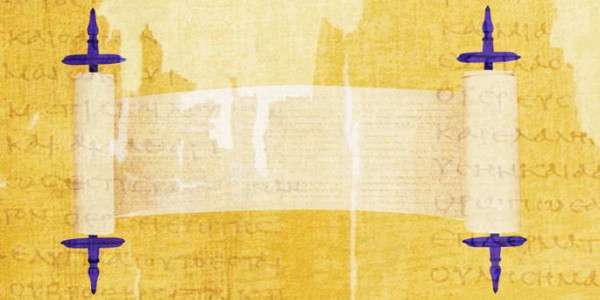What Is the Septuagint?
04/05/2023 | Na stronie od 04/05/2023

Art by Sefira Lightstone
Source: Chabad.org
The Septuagint
The Septuagint (derived from the Latin word for “seventy”) refers to the (Koine) Greek translation of Scripture that has become the basis for most non-Jewish translations of the Bible. In Hebrew, it is called Targum Hashiv’im, “The Translation of Seventy.” It is thus named because the first Greek translation of Scripture was rendered by a group of seventy (or 72) elders on behalf of King Ptolemy of Egypt in the 3rd century BCE.
It should be noted that the Greek text referred to as the Septuagint is not the same text produced by the rabbis in Egypt, as we shall soon see.
King Ptolemy and the Seventy-Two Sages
We read in Tractate Sofrim:
It once happened that five elders wrote the Torah for King Ptolemy in Greek, and that day was as ominous for Israel as the day on which the Golden Calf was made, since the Torah could not be accurately translated.(1)
(Read here why this was considered to be such a tragedy.)
The next part of the story is also recorded in the Babylonian Talmud:
It also happened that King Ptolemy assembled 72 elders and placed them in 72 rooms without telling them the reason for which he had assembled them. He then went to each one of them and said to him, “Write for me [a Greek translation of] the Torah of Moses your master.” G‑d put the same idea into each of their minds, and [on their own] they agreed to one understanding.(2)
The Talmud then goes on to list 13 instances in which they all veered from translating the text in a perfectly literal way, as there was a concern of it being misunderstood.
For example, instead of translating the opening line of the Torah as “In the beginning, created G‑d,”(3) which might be misinterpreted to mean that a power named “In the beginning” created G‑d, they translated it as “G‑d created in the beginning.”
Other changes were made so as not to insult the king. Thus, in the list of nonkosher animals,(4) they rendered “hare” as “short-legged” so as not to offend Ptolemy, whose wife’s name meant “hare.”
The “Septuagint”
Reading the above story, we learn that:
- The sages only translated the Five Books of Moses into Greek
- They made specific tweaks, which are clearly listed
Thus, they were not the authors of the work known today as Septuagint, which:
- Contains the entire Bible (as well as the Apocrypha)
- Does not contain the specific changes listed in the Talmud
Accordingly, while the Septuagint is a fascinating work, it is not at all authoritative, and can no way be considered to be on par with the original Hebrew.
FOOTNOTES
- Tractrate Sofrim 1:7-8.
- Megillah 9a; variations of this incident are also described by Philo, Joespehus and various other sources.
- Genesis 1:1.
- Leviticus 11:6.
By Yehuda Shurpin
A noted scholar and researcher, Rabbi Yehuda Shurpin serves as content editor at Chabad.org, and writes the popular weekly Ask Rabbi Y column.
Rabbi Shurpin is the rabbi of the Chabad Shul in St. Louis Park, Minn., where he resides with his wife, Ester, and their children.
More from Yehuda Shurpin | RSS
© Copyright, all rights reserved. If you enjoyed this article, we encourage you to distribute it further, provided that you comply with Chabad.org's copyright policy.